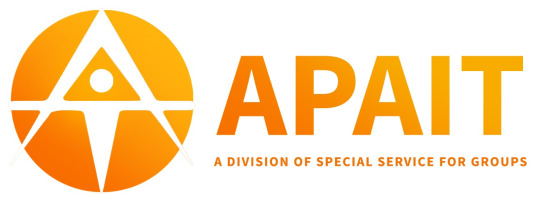The rate of new HIV diagnoses is high within the Asian American and Pacific Islander community: one of the few racial or ethnic communities for which HIV rates were on the rise in the last decade. Yet, only 1 in every 3 AAPIs know their HIV status: which means our community has the lowest rate of HIV testing of any group. In one survey, 90% of AAPI Seattle survey respondents identified themselves to be engaging in behaviour that might put them at-risk of HIV contraction, yet only 47% had been tested.
Part of what creates this low testing rate has to do with barriers of inaccess to HIV tests. Many AAPI lack healthcare coverage — which is why the Affordable Care Act was important for our community — and linguistic and cultural barriers further hinder regular check-ups. Even AAPI who regularly visit a healthcare provider might still encounter difficulties accessing tests: only 17% of AAPI women, for example, are ever offered an HIV test by their OB/GYN, which is the lowest rate for women of any race.
Consequently, AAPI receive their HIV-positive diagnoses later after their infection than patients of any other race. 44% of AAPI are diagnosed 1-year after their infection (vs. 37% of White patients); this delay in diagnosis also delays the start of treatment. In parts of California, new HIV diagnoses among local AAPI populations are 4x the national rate.
These statistics demand that our community do more to improve access for AAPIs to simple and effective HIV diagnosis tests that can help educate and empower members of our community with their HIV status.
That’s exactly what APAIT — the Asian Pacific AIDS Intervention Team — hopes to do, and they are asking for your help.
https://www.youtube.com/watch?v=-x_gD0AkBj0
Founded in 1987, APAIT‘s mission is to focus support and (free) resources on Southern California’s vastly underserved AAPI community with regard to HIV/AIDS and other health disparities including substance abuse and mental health counseling. Many of APAIT’s services are focused on in-patient programs, but APAIT has just launched a campaign asking for the community’s help to purchase a mobile HIV testing unit, to help bring HIV testing into our community — and to all underserved people — with the goal of getting each and every one of us to know our status.
In their Indiegogo campaign, APAIT writes:
One of our goals as an organization is to serve hard to-reach clients. With HIV testing technology developing rapidly, APAIT strives to reach underserved individuals and to meet them where they are or feel most comfortable. Last year, APAIT identified a higher proportion of newly diagnosed individuals (with a 2.55% seropositivity rate) as compared to countywide testing (with a 1.19% seropositivity rate). Nonetheless, our ability to test off-site is limited due to our inability to secure private testing spaces. Alongside this, there are multiple barriers that prevent individuals from getting tested: (1) It may be hard for some individuals to take time out of their week to go to a health center. (2) Others may be scared of the stigma associated with HIV/AIDS, which may cause them to not want to be seen at a health/testing center. (3) There are individuals who simply have never thought about getting tested.
In order to address these barriers, we feel that our next step is to invest in a mobile testing van. This will allow us to expand our ability to provide HIV testing services to communities that are at greatest risk for HIV. Early detection will save lives.
APAIT is hoping that the community will help them raise $30,000 between now and April 18th, which will go entirely to purchasing and retrofitting a cargo van to house their mobile HIV testing unit.
Leticia, an APAIT benefits counselor, says in the video above:
With a mobile testing unit, it’s easier to identify those people — those people who because they don’t know they are HIV-positive are less likely to come in to a clinic or into an office and get tested. If they testing site was somewhere where they have easier access to it, they see it more often, and they are more exposed to it, they are more likely to go get tested, and get help if they need it.

Mobile testing will encourage people to test more frequently, as we provide HIV testing beyond our storefront to the communities most in need. APAIT will be able to reach areas that have high infection rates, such as Skid Row – an area of Downtown Los Angeles inhabited by a dense population of homeless people. APAIT will also be able to serve populations that have low testing rates. …Within the transgender community, less than 1% of the population get tested (Source). This is concerning since a recent study led by Dr. Stefan Baral, Director of the Key Populations Program in the Center for Public Health and Human Rights at Johns Hopkins School of Public Health, determined that transgender women are 49 times more likely to contract HIV.
Our mobile testing van will also serve as a vehicle for outreach and allow us to reach individuals who otherwise may not know about our free community services that include mental health counseling, substance abuse treatment, housing assistance, and social services navigation.
Whether you have only a few dollars to spare — or a few hundred — I strongly urge you to donate to help make APAIT’s mobile testing unit dream a reality. Knowing one’s HIV status isn’t trivial: it empowers patients to make informed decisions that will not only impact their own health, but the health of those around them.
Since the beginning of the epidemic, HIV has directly affected millions of lives. You may not have HIV, nor may be aware of anyone that has HIV, but HIV is more common than you think. People can live with the virus for a long period of time without showing any signs of infection and may spread it unknowingly. By knowing one’s status, people can make conscious health decisions regarding their health and in doing so, the health of others. Join us in taking the necessary steps to help prevent the spread of HIV and to provide treatment for those who are living with HIV/AIDS.
Here at APAIT, we recognize that the struggle expands across communities. Thank you for helping us not only save lives, but also improve the quality of lives. Don’t forget to know your status and to help others know theirs too!
Act Now! Please take a couple of minutes to make a (tax-deductible) contribution to APAIT’s Access to Status campaign to create a mobile testing unit, and please share this post with your friends to help spread the word! Everyone should know their status!
Read More: May 19th is #AAPI #HIV / #AIDS Awareness Day: 10 Facts You Probably Didn’t Know
APAIT’s Access to Status fundraising campaign will appear in the Spotlight section in the upper right sidebar of this site until April 18th.


